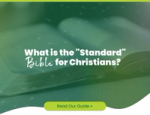'Clergy are not employees' - Judge rules
Simon Cross
Church of England clergy are not employees, and as such cannot sue their dioceses if they believe they have been badly treated, a judge has ruled.
The ruling came after a former Rector claimed his bishop and diocese had failed to protect him from a catalogue of bullying and abuse by parishioners.
Rev Mark Sharpe, former Rector of the Teme Valley South, lost his fight against the bishop and diocese of Worcester when it was ruled that he had no right to bring a claim as he was not an employee.
Rev Sharpe said he had been subject to all kinds of abuse and bullying, alleging that his dog had been poisoned, excrement had been smeared on his car, and his tyres had been slashed.
But the diocese said they had no contractual responsibility to protect the Rector from his parishioners, and successfully argued that as a parish priest with freehold incumbent status Mr Sharpe had no right to bring a claim to an employment tribunal.
Employment Judge Alan McCarry said: “I do not see that within the complex statutory structure of the Church of England it is possible to imply that any relationship between a freehold rector in the Church such as Mr Sharpe and any identifiable person or body which could be said to be consensual and contractual. Certainly, Mr Sharpe has failed to demonstrate to my satisfaction that such a relationship existed with either of the respondents.”
And the judge noted that the extraordinarily complex way that the Church of England is organised makes it impossible for it to be considered a ‘legal personality’, as such it can neither sue, nor be sued.
The huge range of traditions brought together under the name ‘The Church of England’ means that there is no single point of reference which can be identified as representing the whole church.
Judge McCarry added: “The evidence conveyed to me the impression that rather than being one body with a centralised structure of administrative authority, function, control and direction, the title “Church of England” denotes an amalgam of what sometimes seemed an infinite number of bodies with no precise or clear picture to an observer such as myself of how the various jigsaw parts interact and fit together.
“The situation has come about, I believe, because of the piecemeal approach to legislation over the years amending a diverse range of ancient traditions.”
The Bishop of Worcester, Dr John Inge, said that the tribunal had upheld the traditional view of the Church of England, and would be welcomed by the majority of priests as it gives them freedom.
He said: “Clergy themselves have repeatedly said that they do not see themselves as employees and do not wish to be seen as such.
“This case has shown that Church of England vicars are not subject to any employment contract but are free to exercise their ministry as they see best within the framework provided by the law of the land.”
Latest Blogs

Gifts
Finding Your Symbol of Faith: A Guide to Christian Cross Necklaces
Looking for the perfect symbol of faith? Explore our guide to Christian cross necklaces, from rustic wooden designs and sturdy men's chains to elegant silver pendants.

Gifts
The Best Christian Gifts for Under £20
Looking for a meaningful gift that won't break the bank? Explore our guide to the best Christian gifts under £20, from inspiring journals to beautiful home decor.

Gift Guide
15 Confirmation Gift Ideas for Boys and Girls
Celebrating a confirmation? Discover 15 meaningful gift ideas for boys and girls, from youth Bibles and jewellery to inspiring journals and keepsakes.

Bible
30+ Powerful Quotes About the Bible (For Inspiration in 2026)
Looking for inspiration? Discover a curated collection of the most powerful quotes about the Bible, from famous historical figures to modern theologians and Scripture itself.

Bibles
What is the "Standard" Bible for Christians?
Is there an "official" Bible that all Christians use? We explain the difference between the NIV, KJV, and ESV, and help you find the standard text for your church or personal reading.

Bible
"I Keep Failing to Read the Bible" – 5 Tips to Make the Habit Stick
Do you start a Bible reading plan only to quit a few weeks later? Stop the cycle of guilt. Here are 5 psychological tips and practical changes to help you build a Bible habit that actually lasts in 2026.
